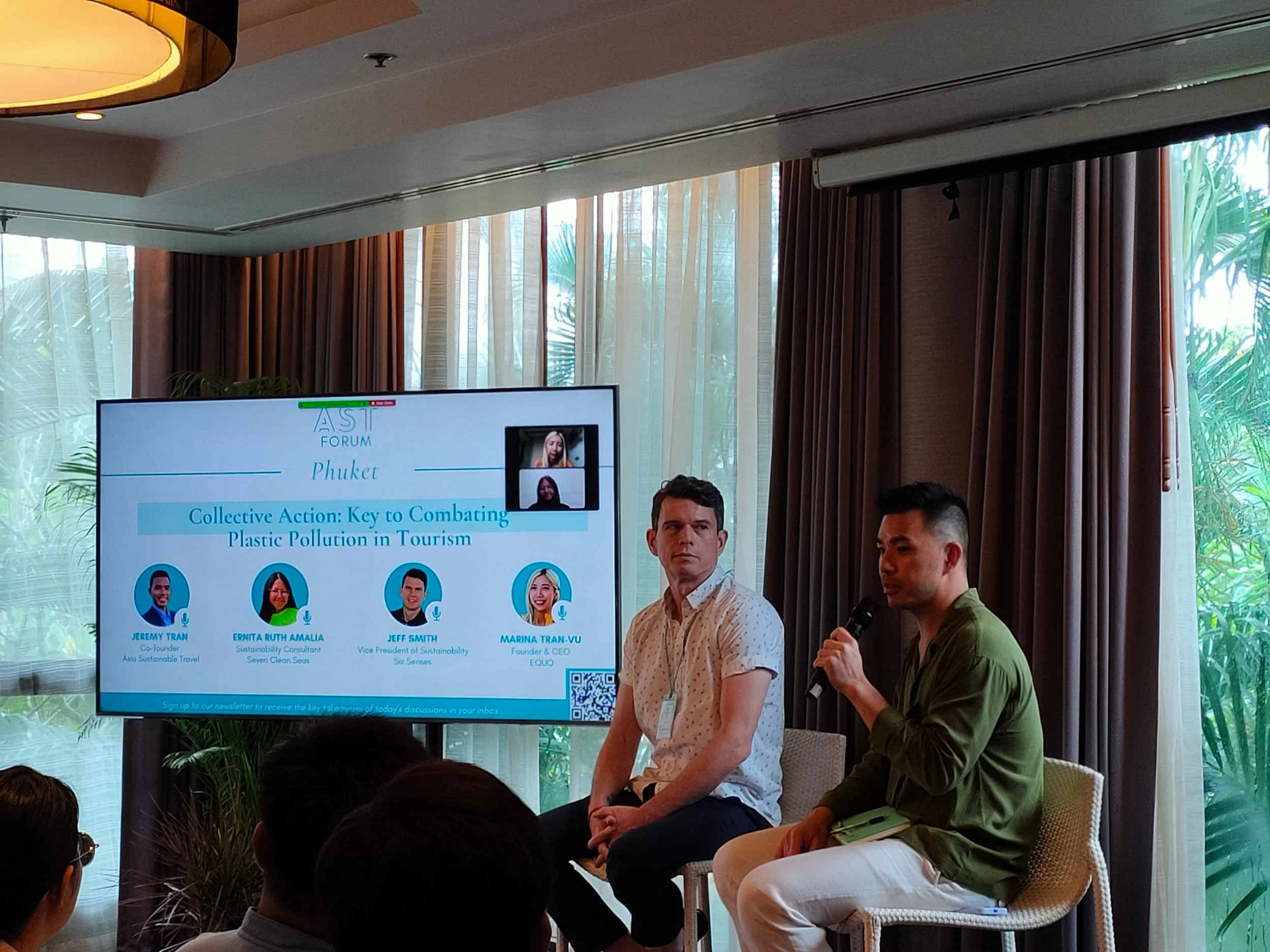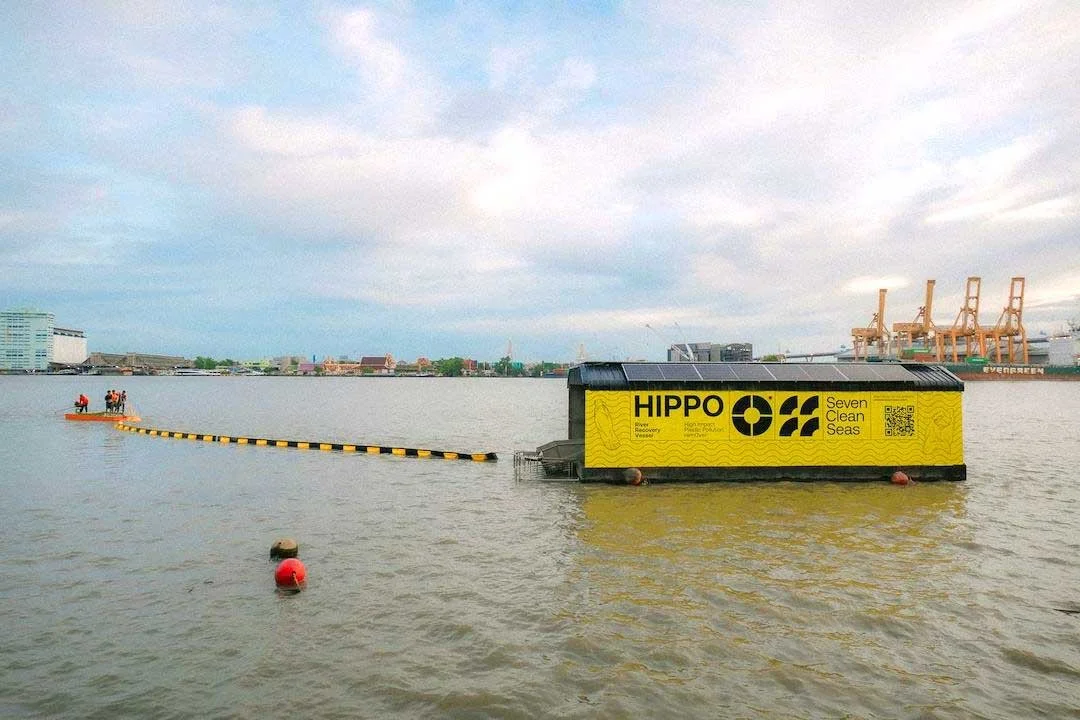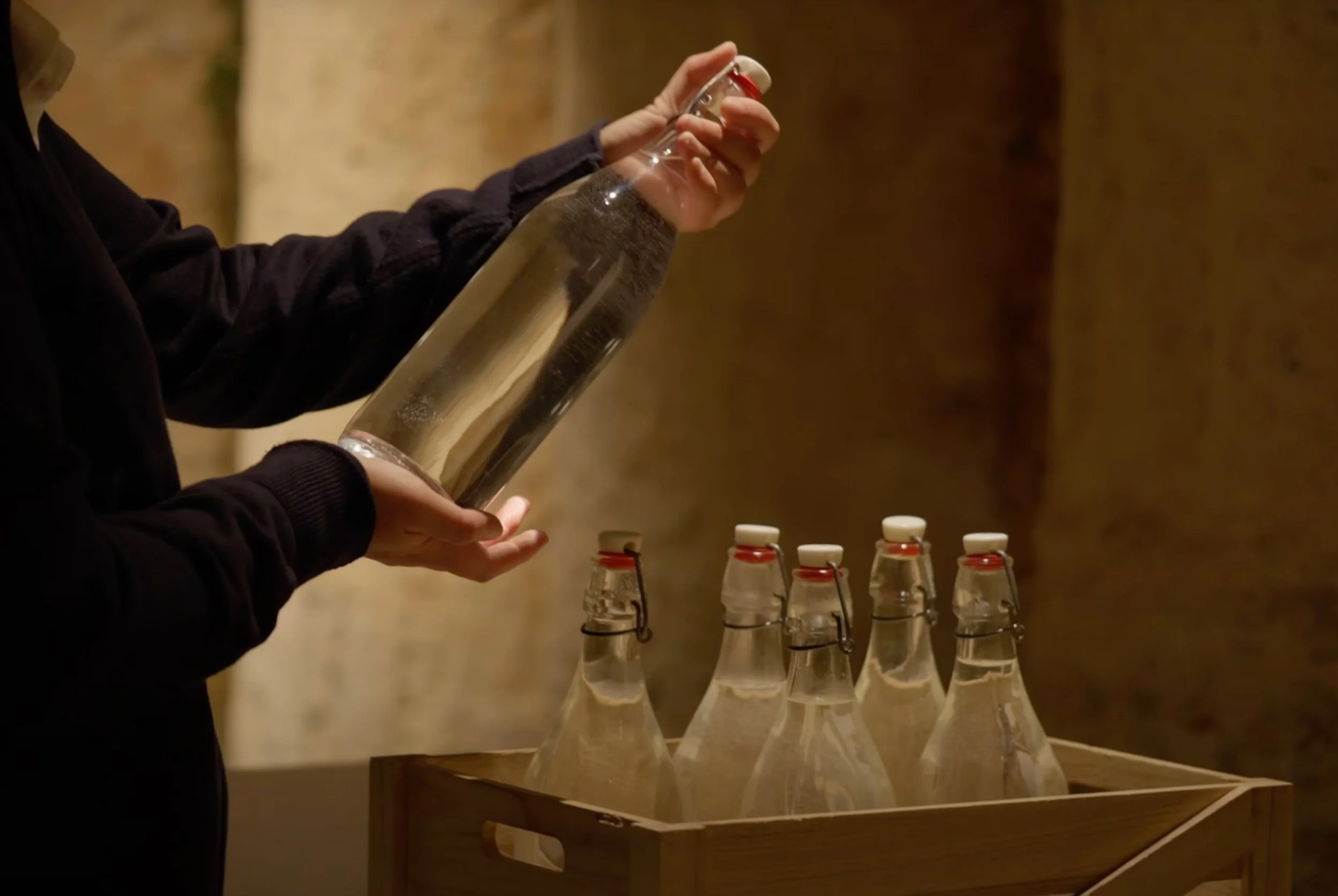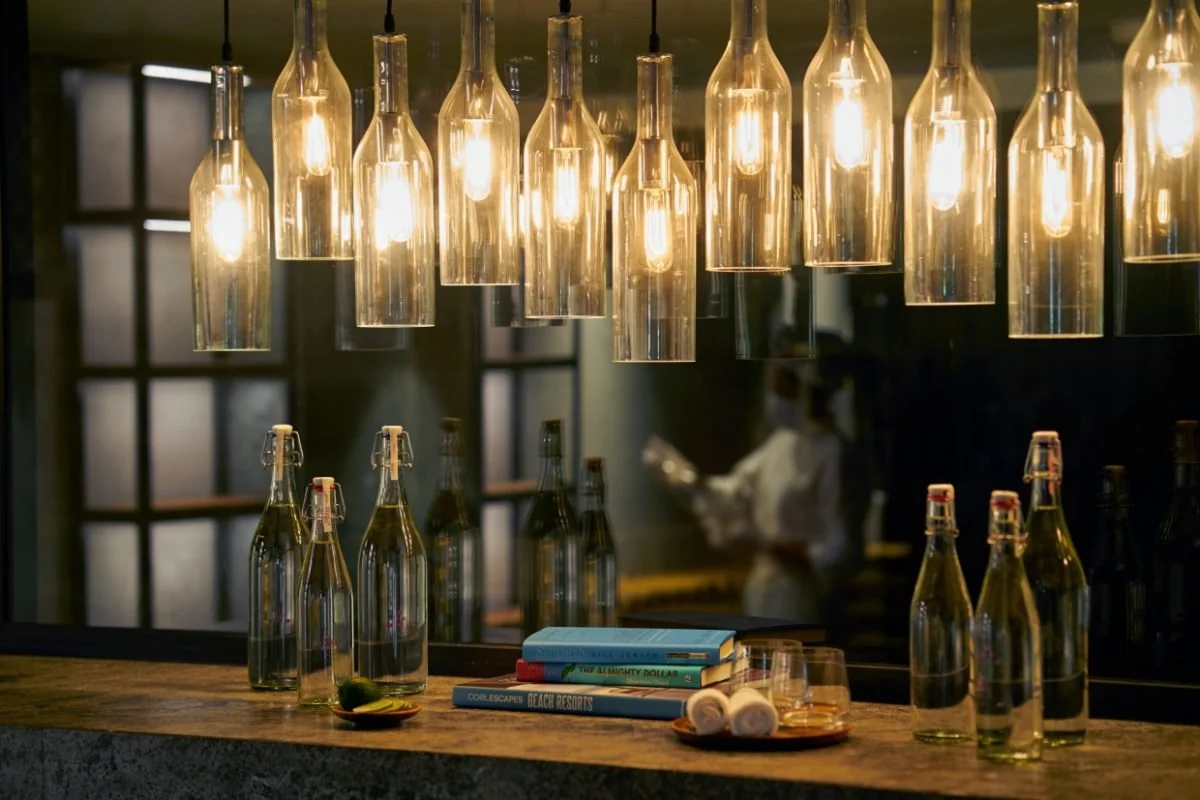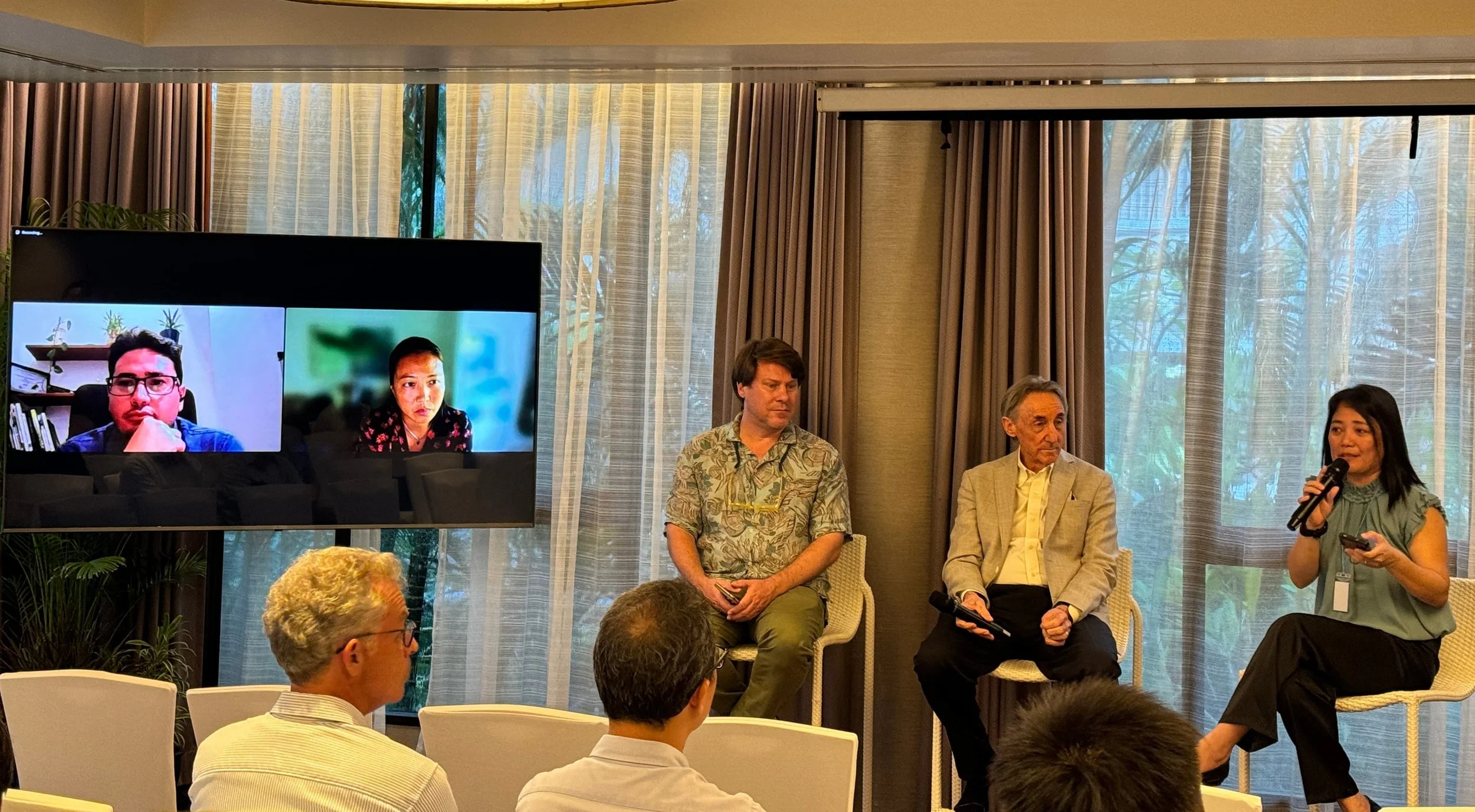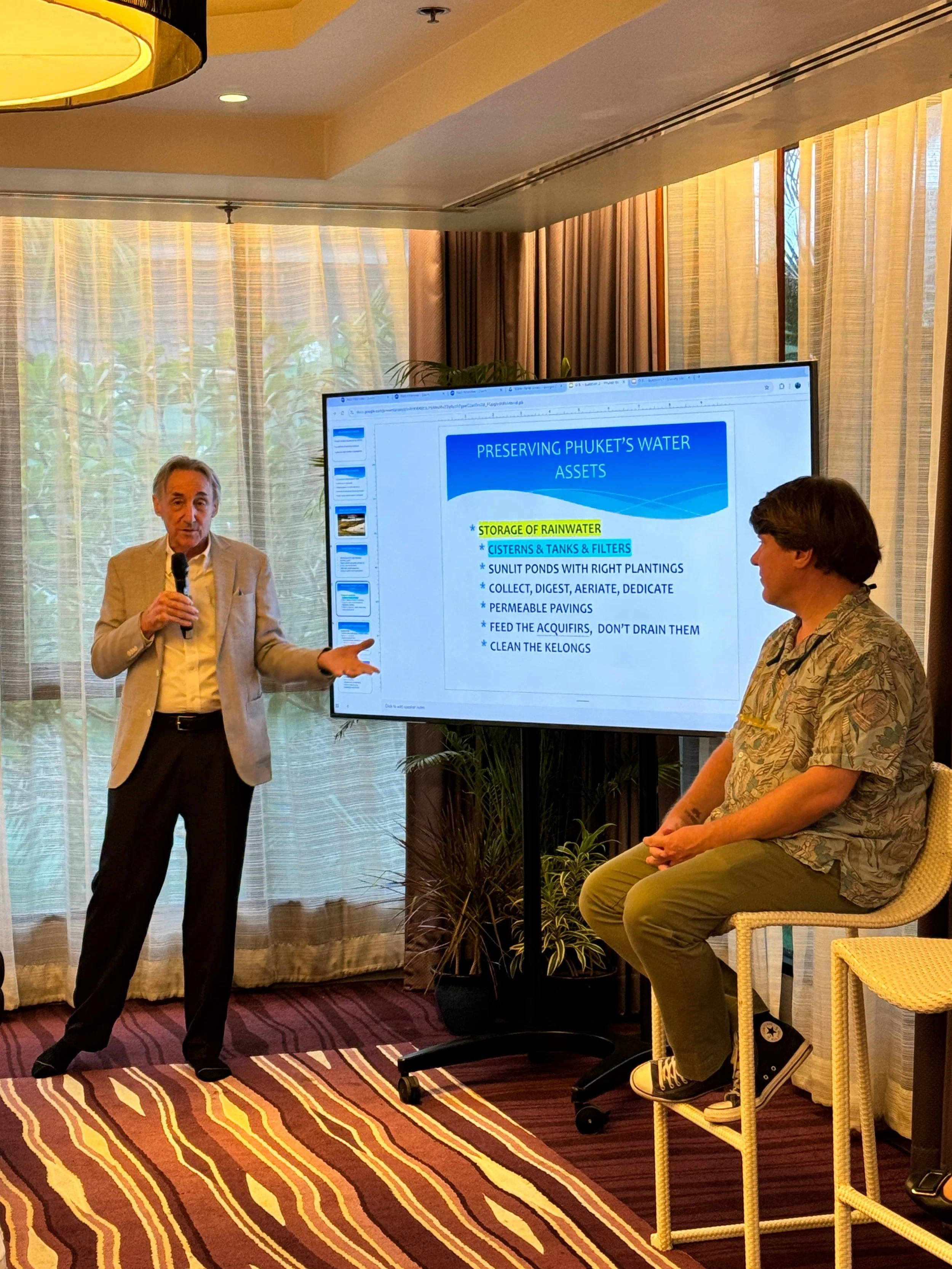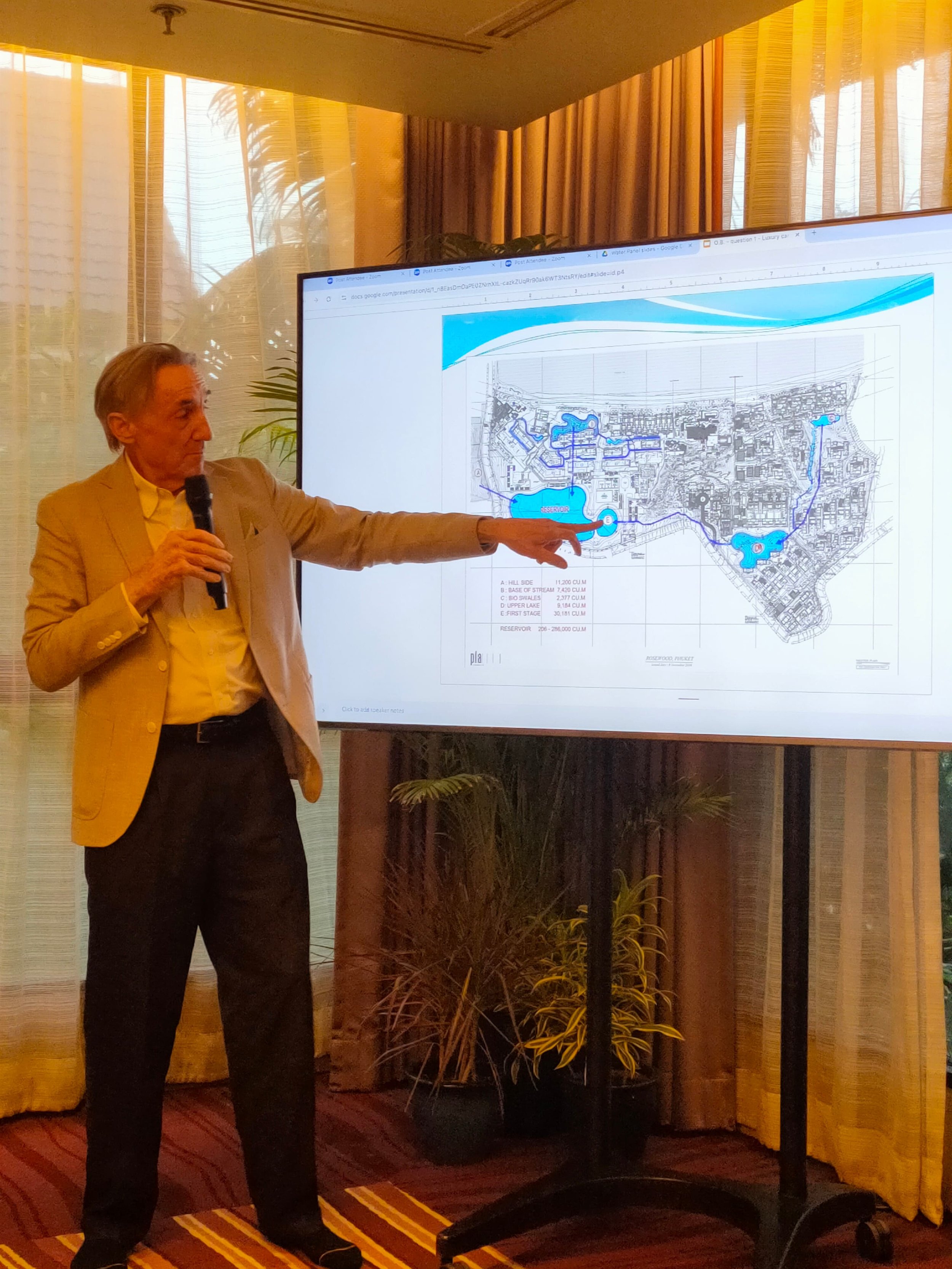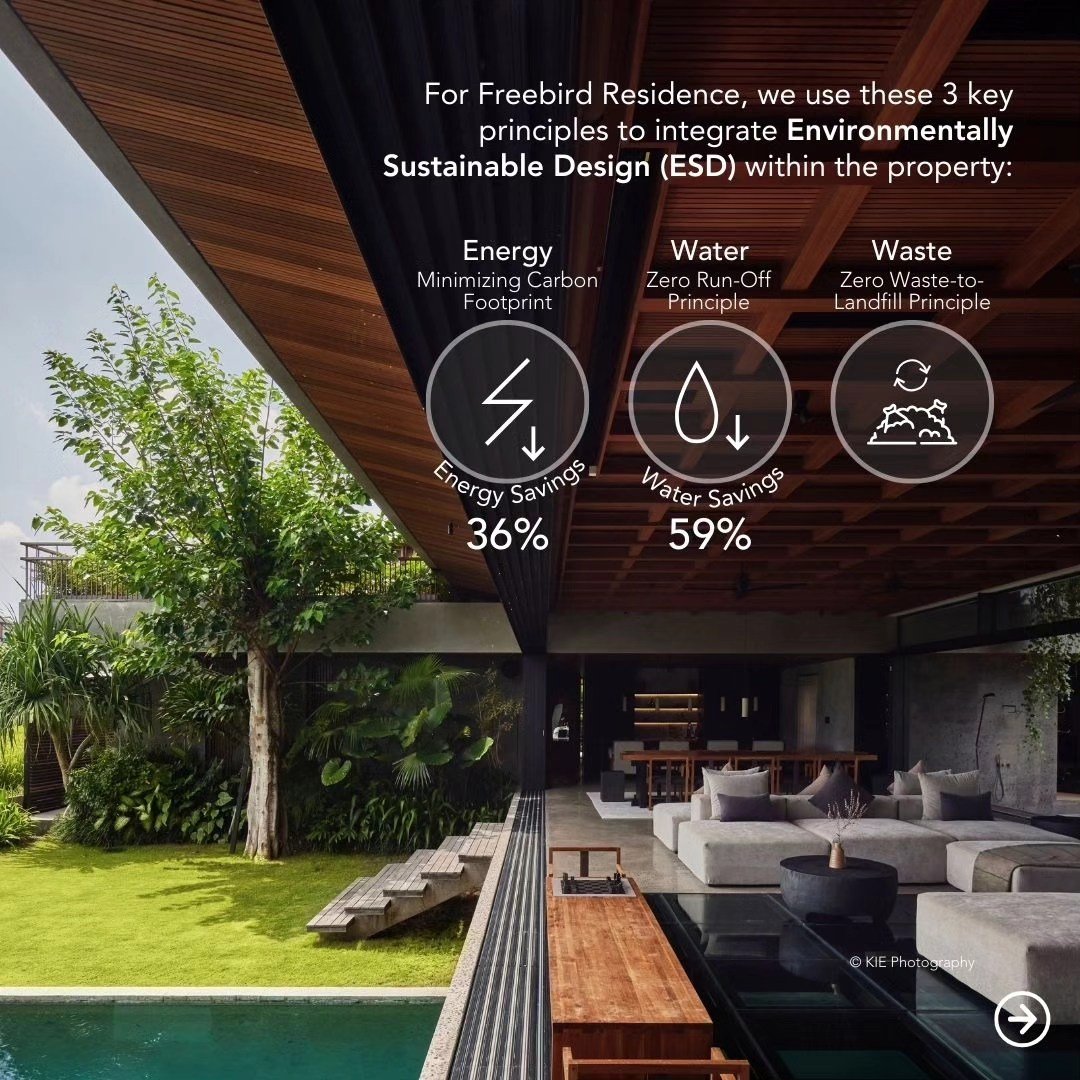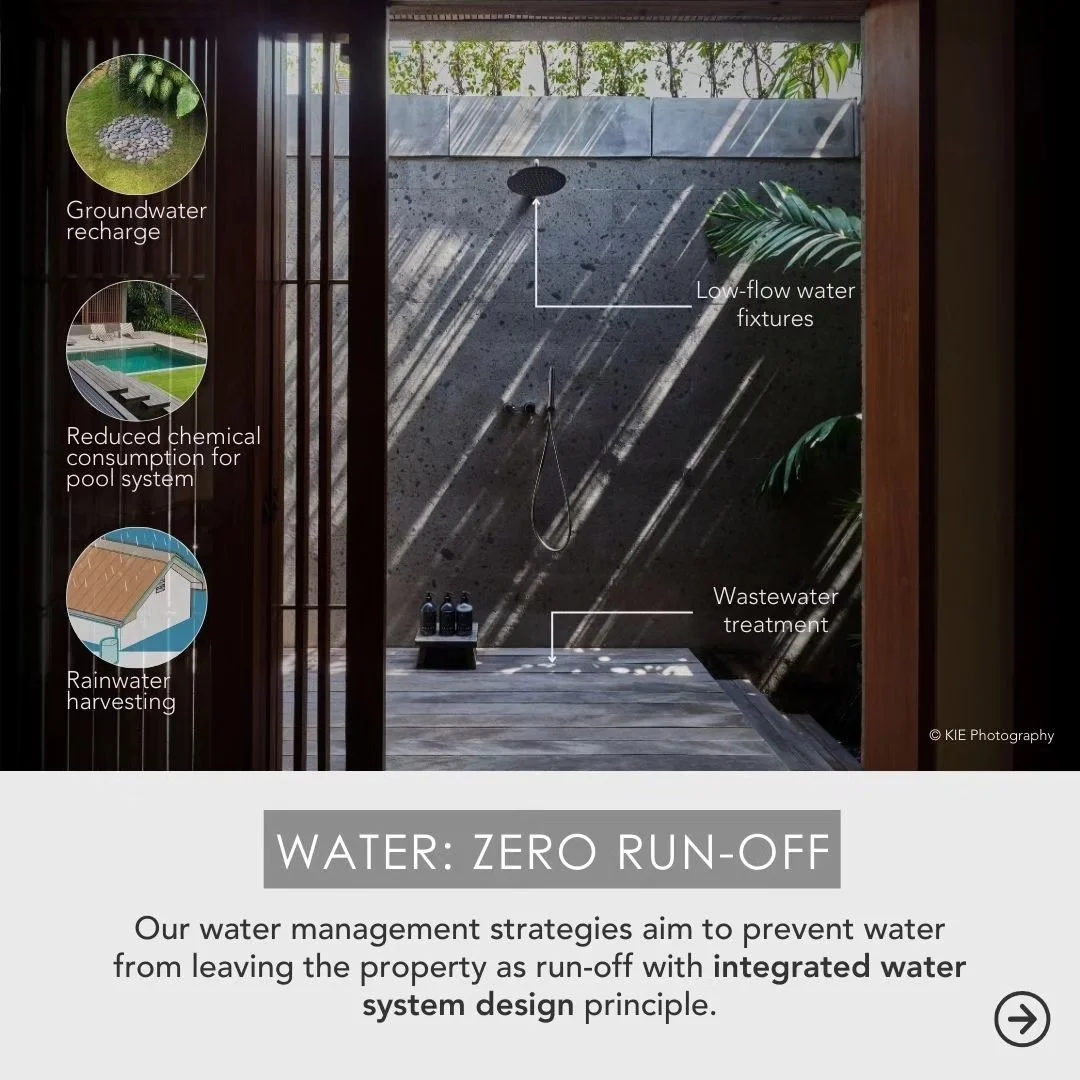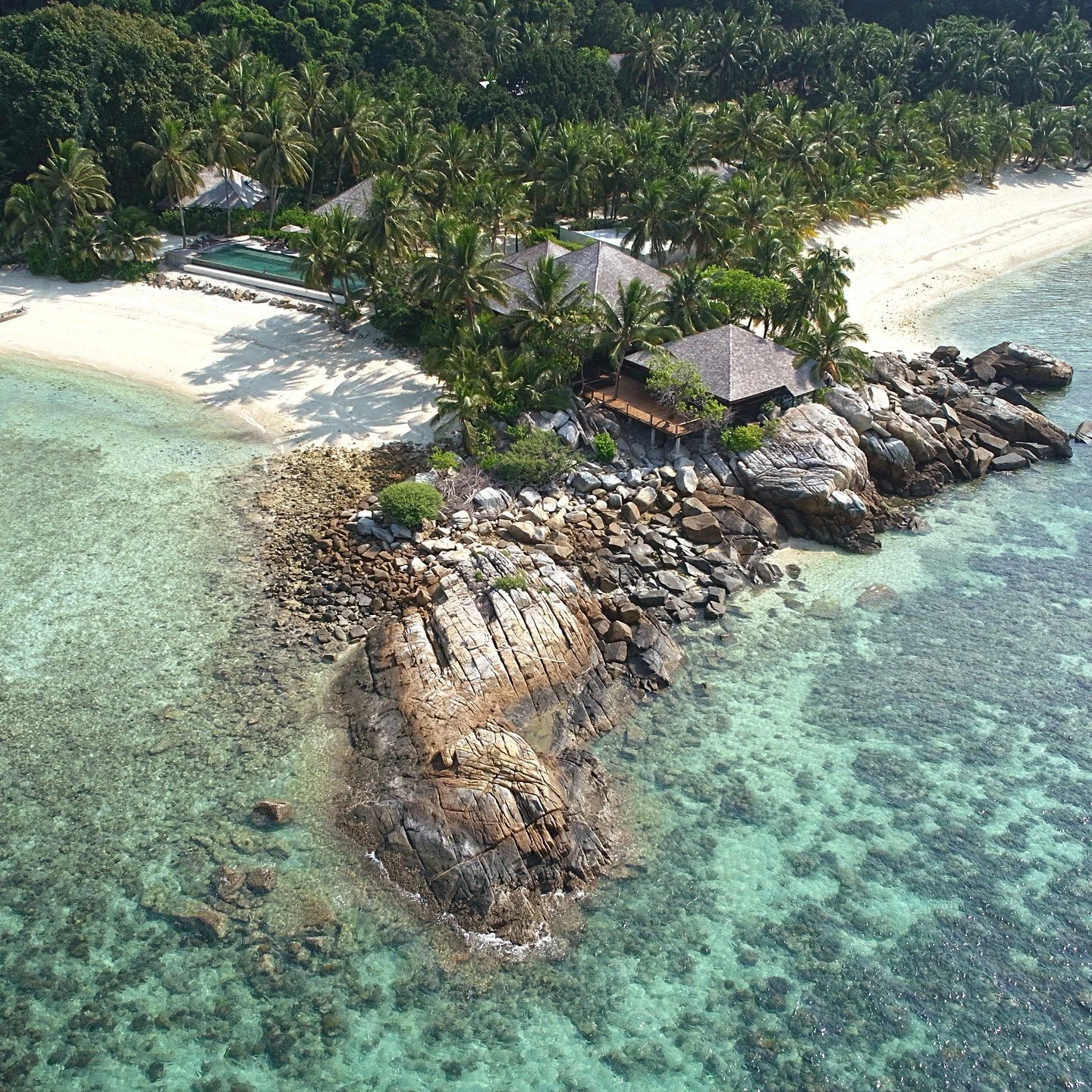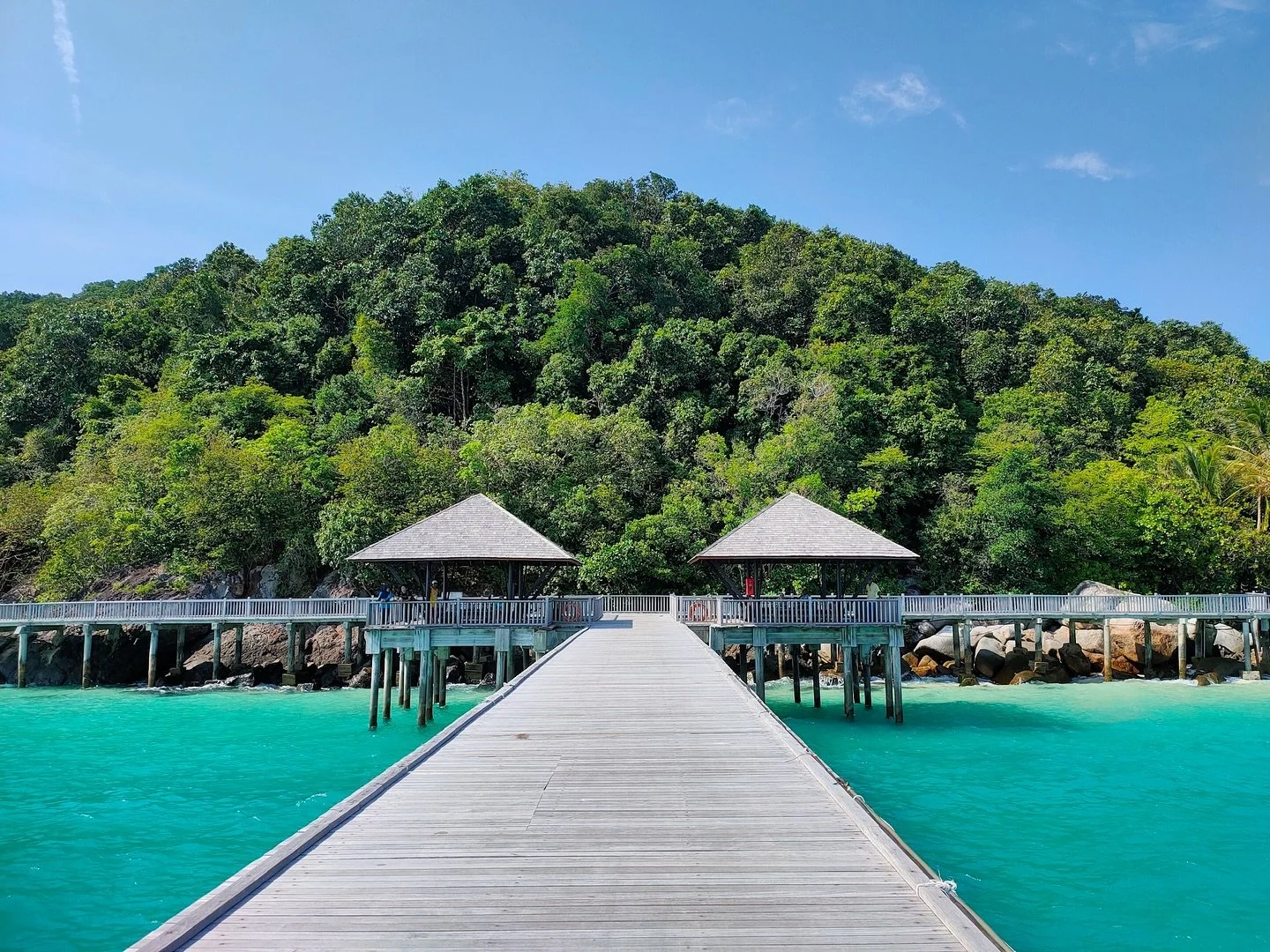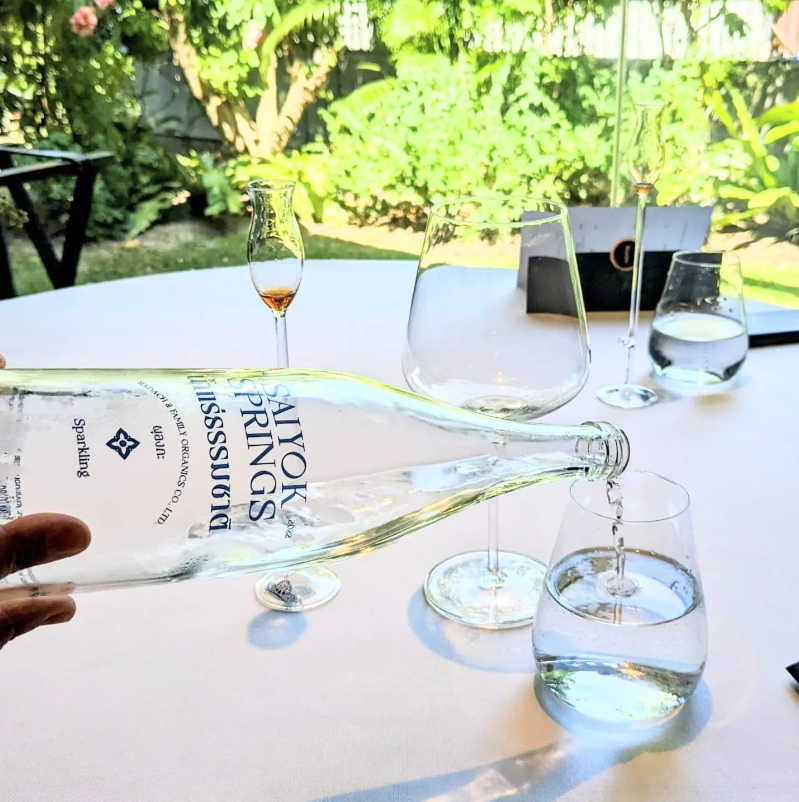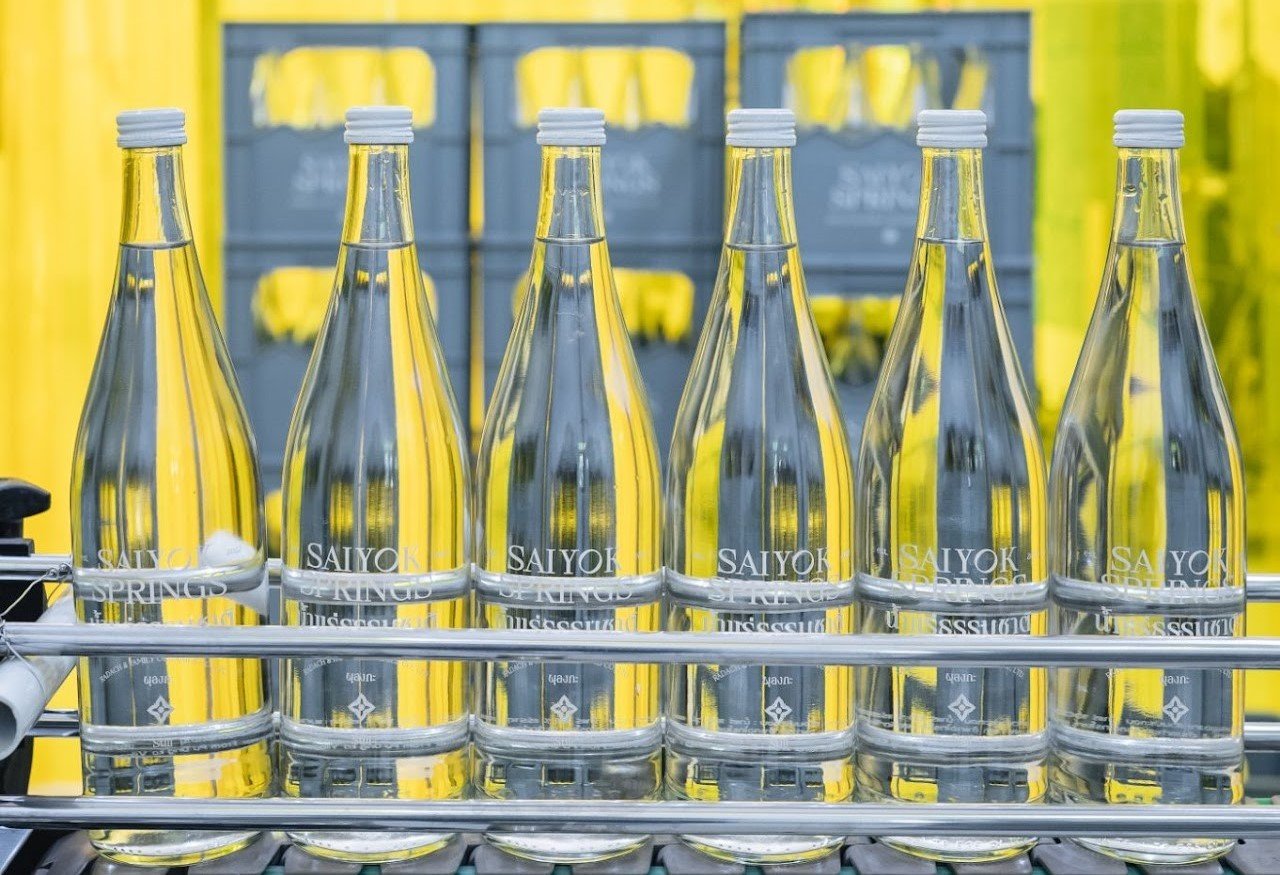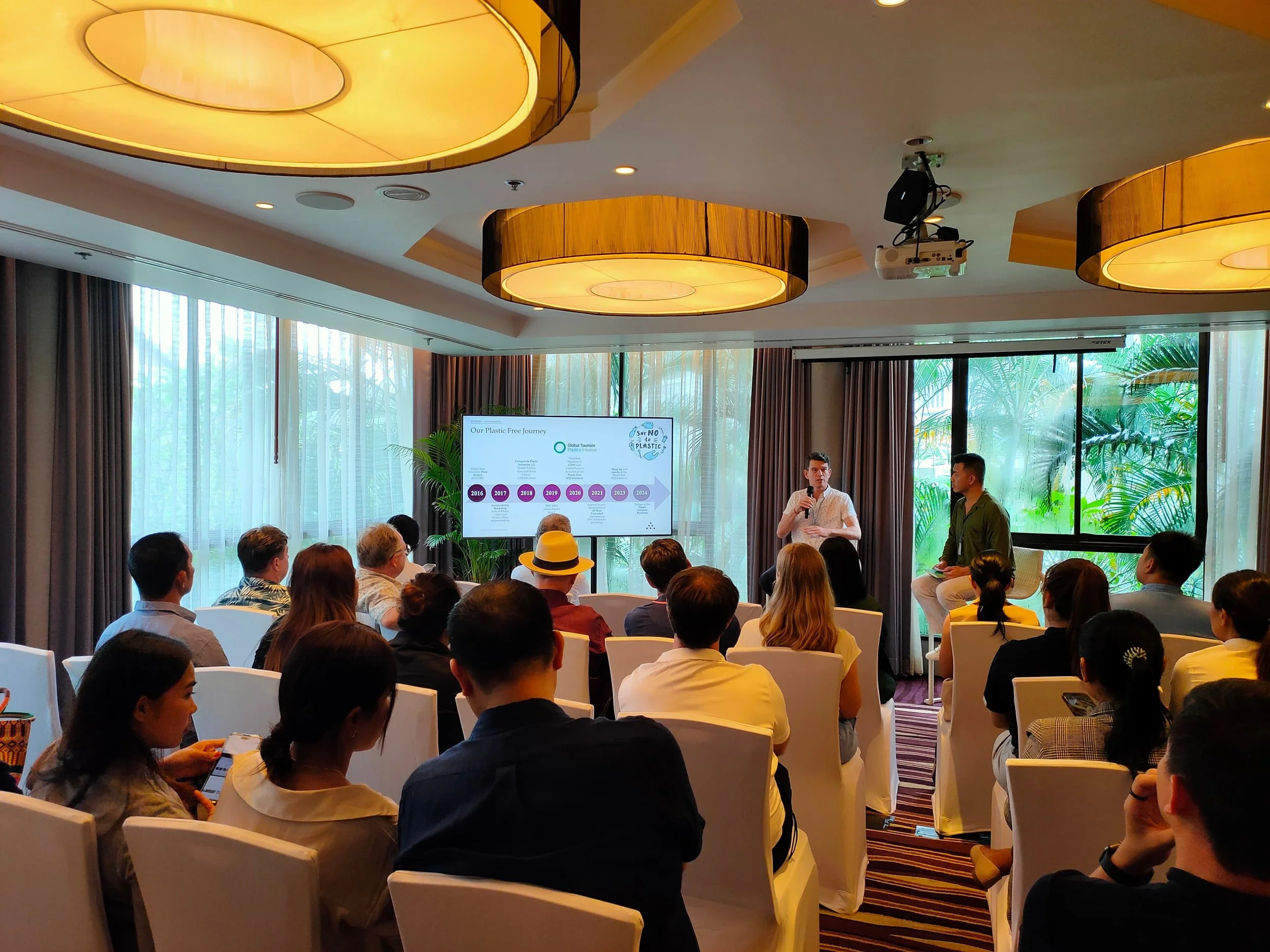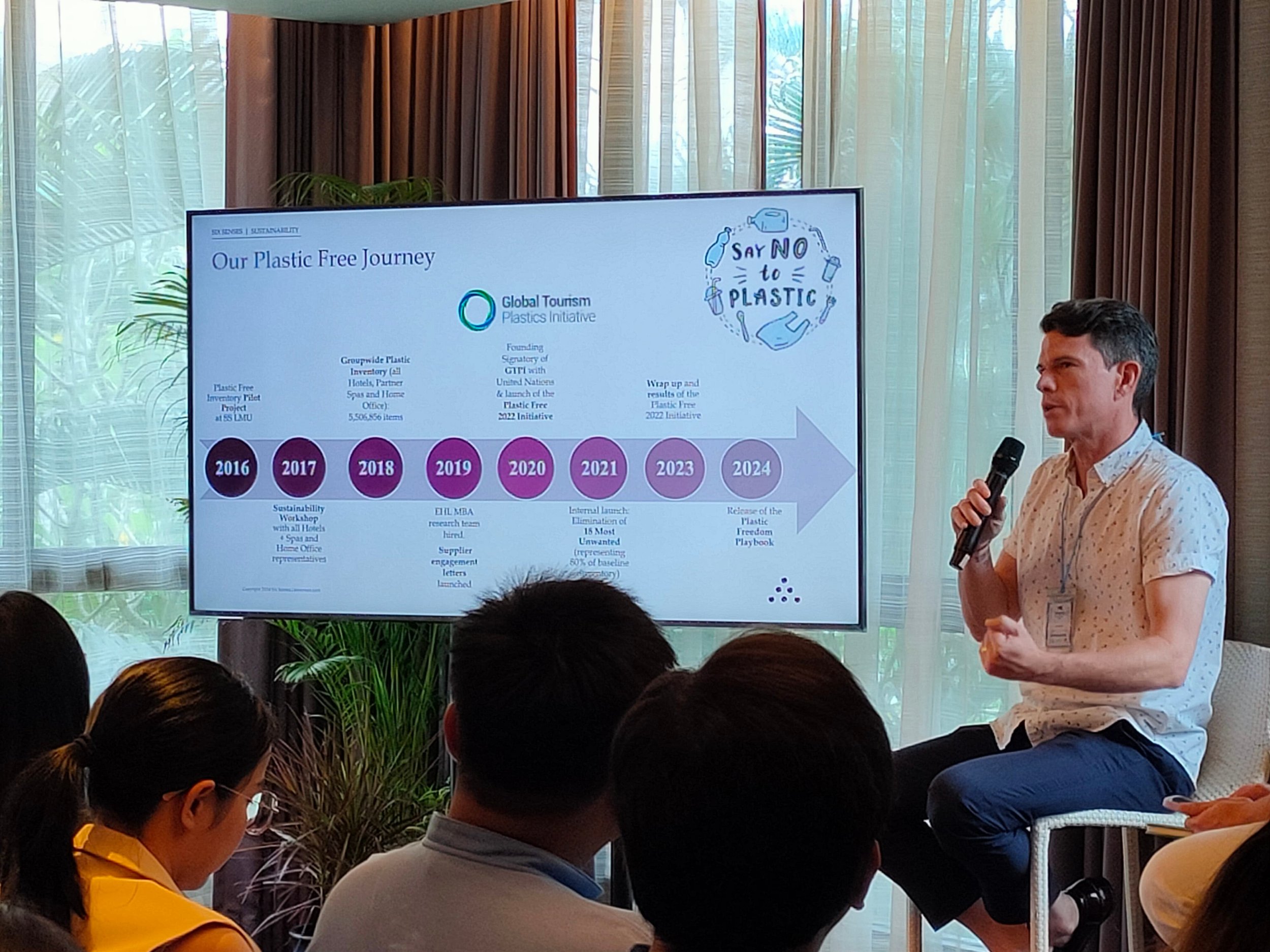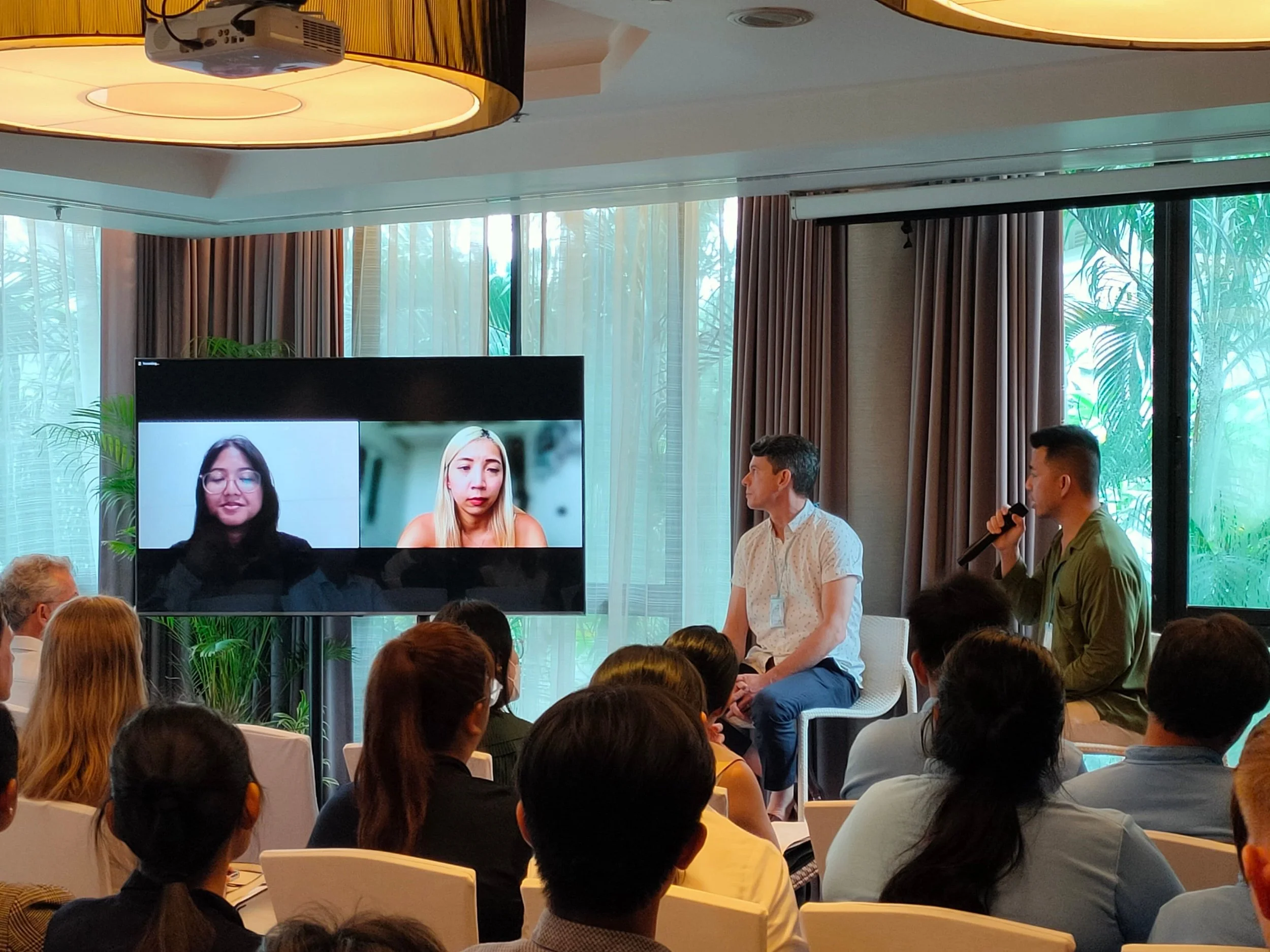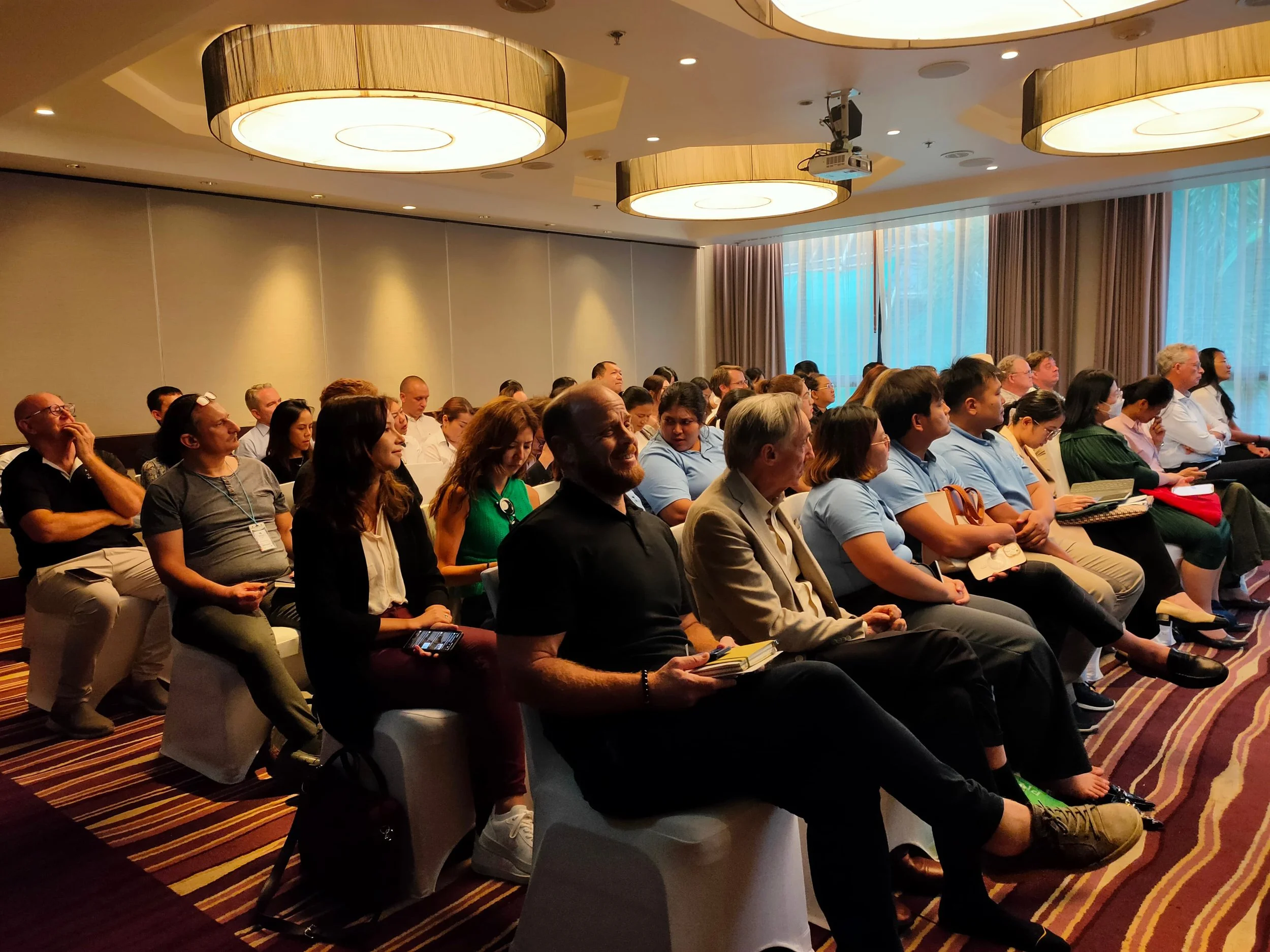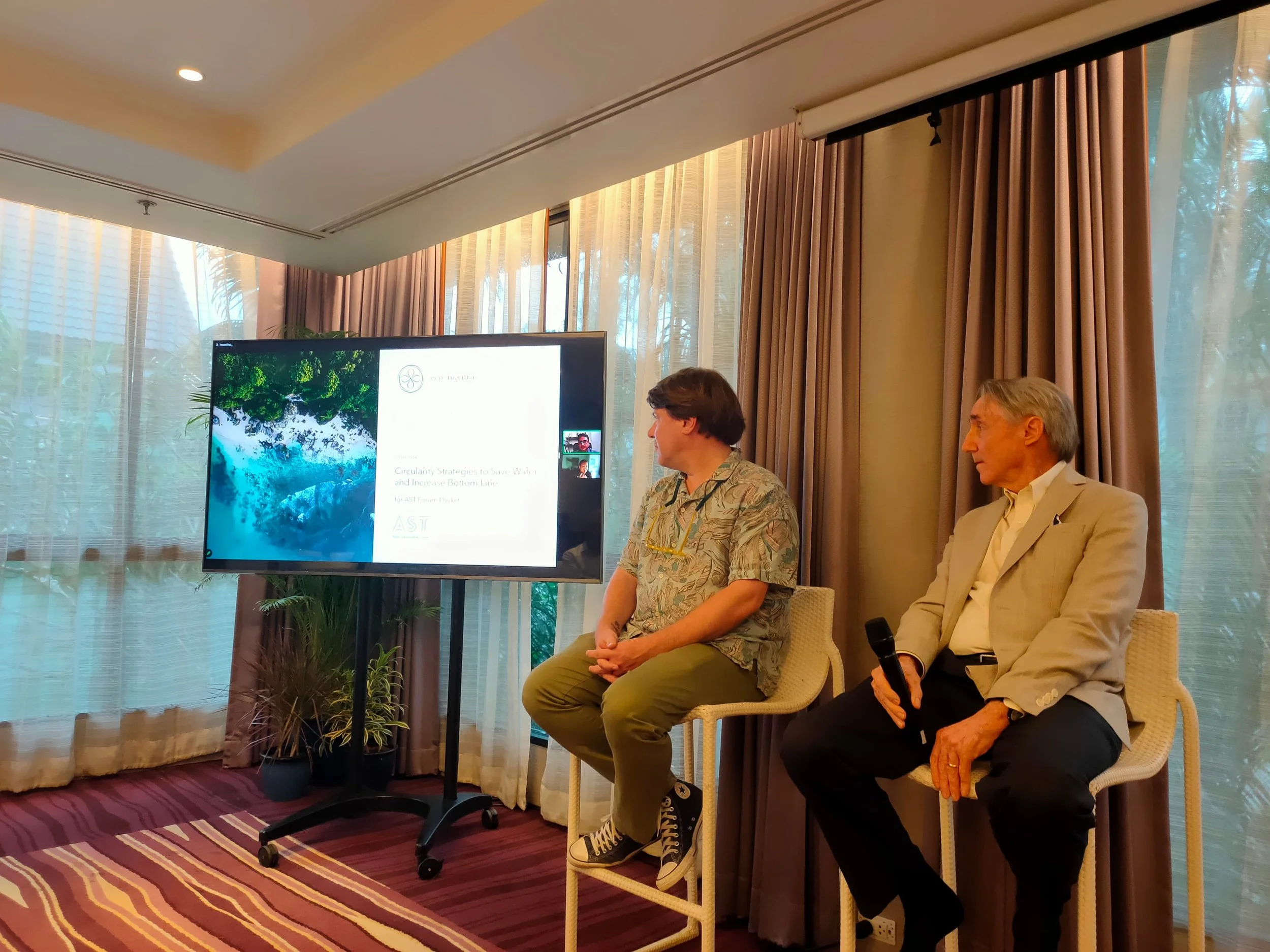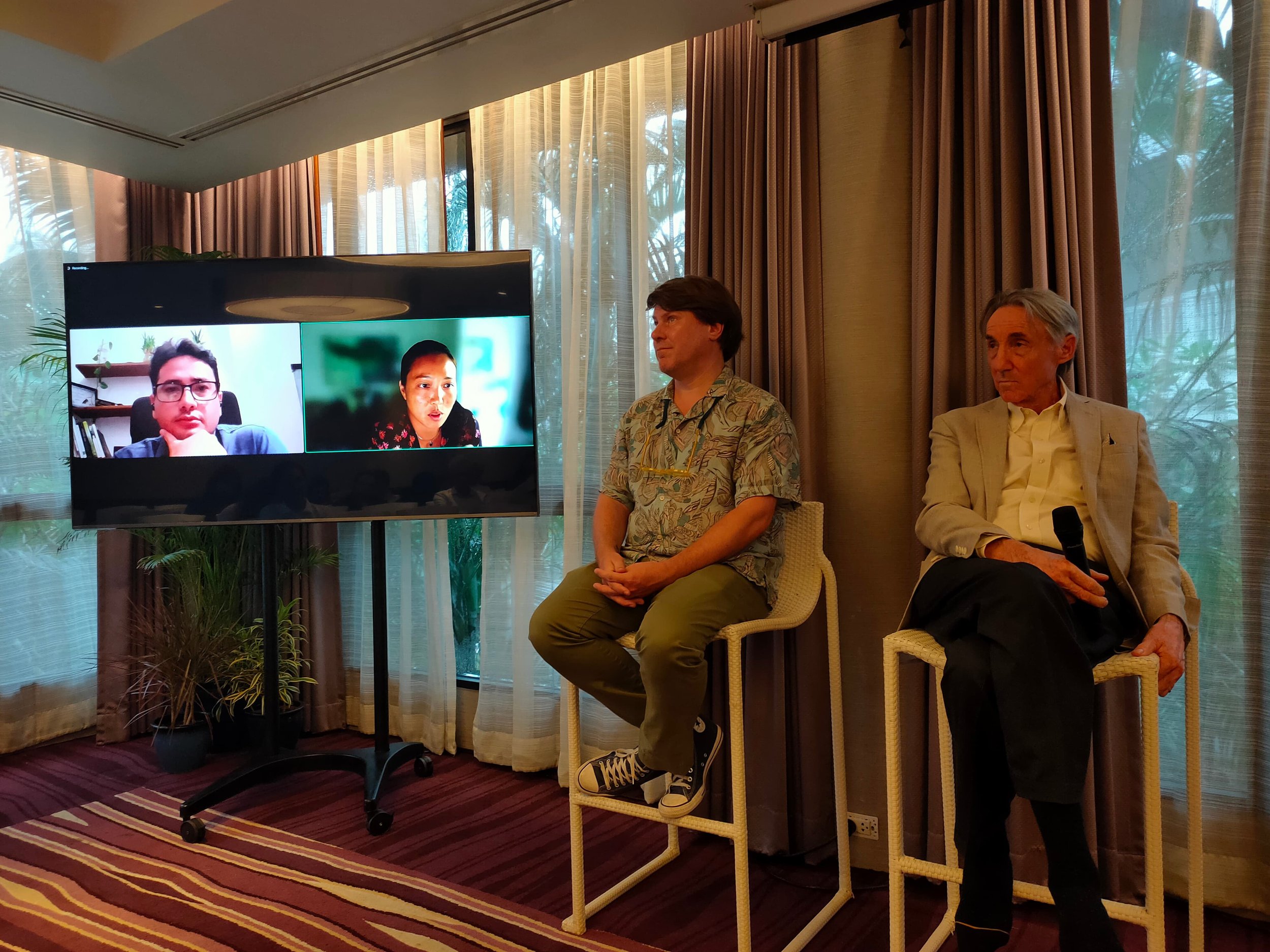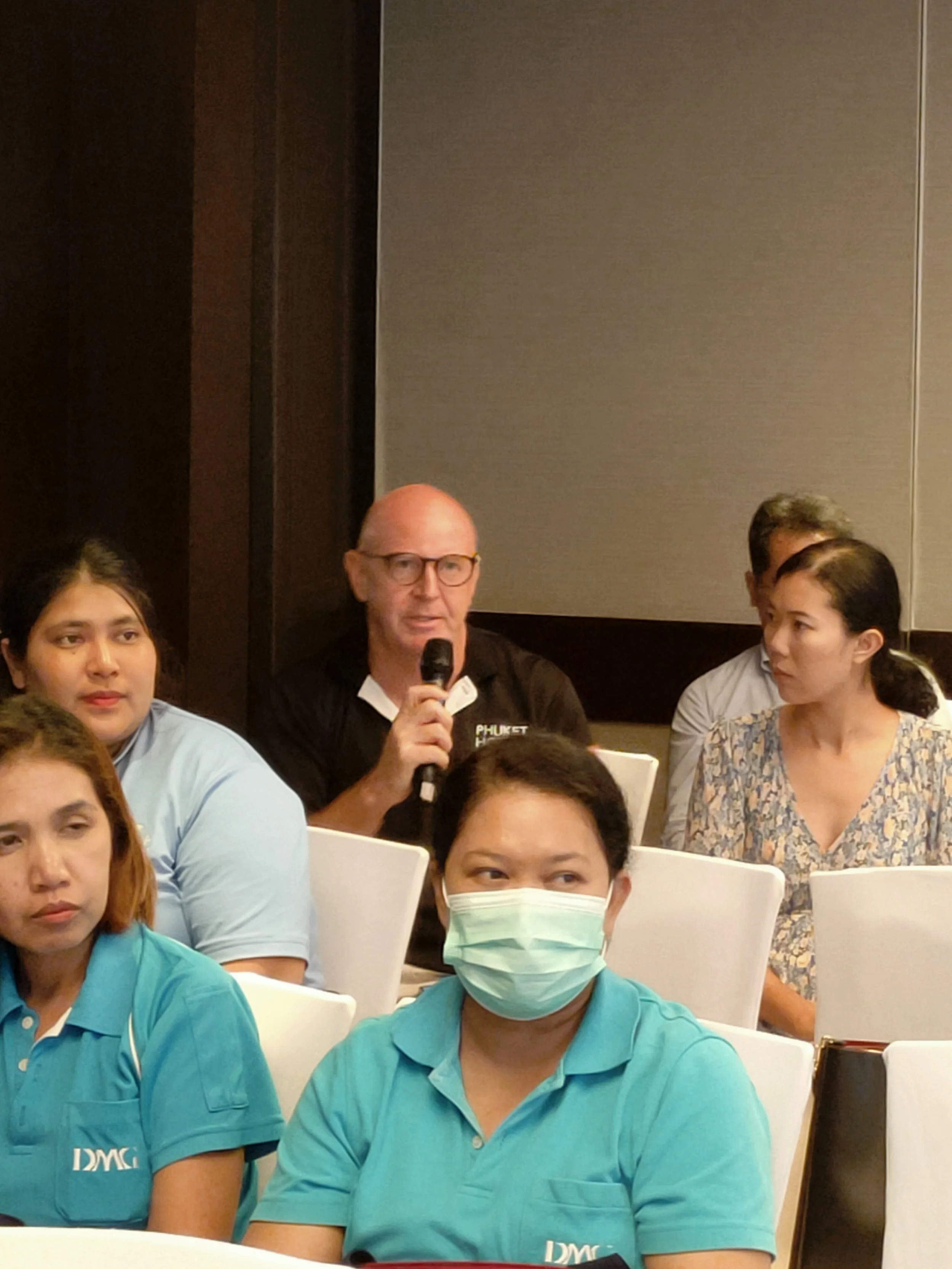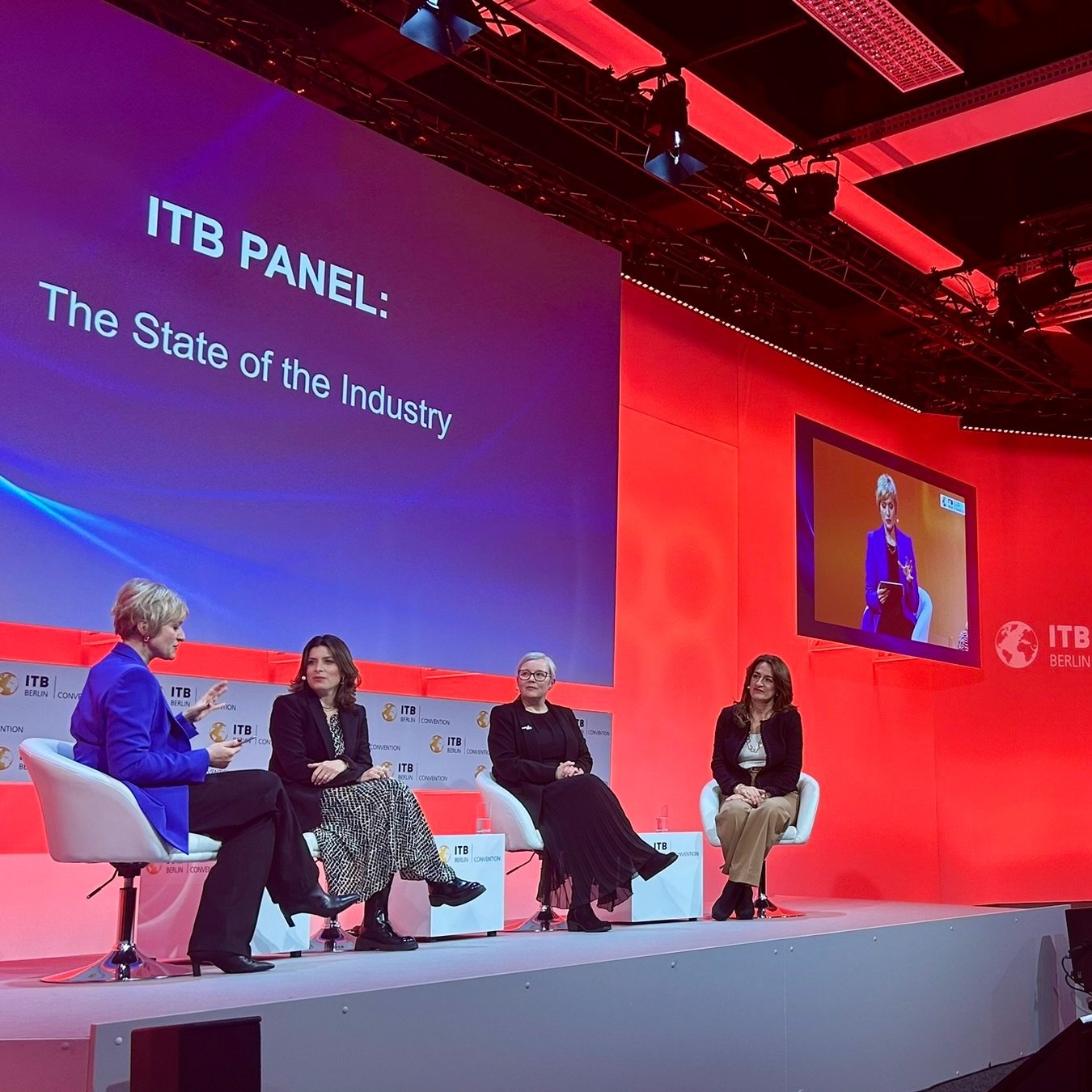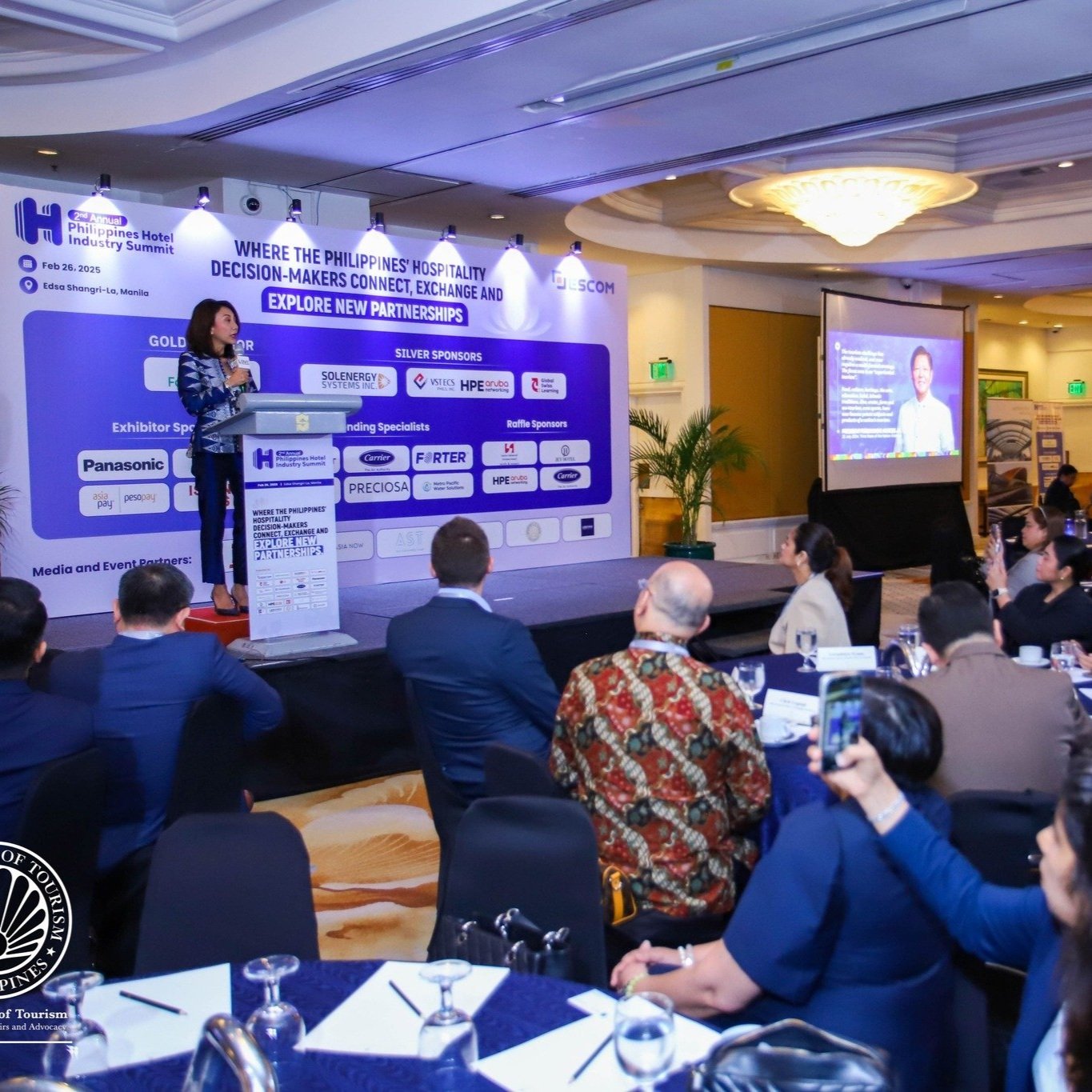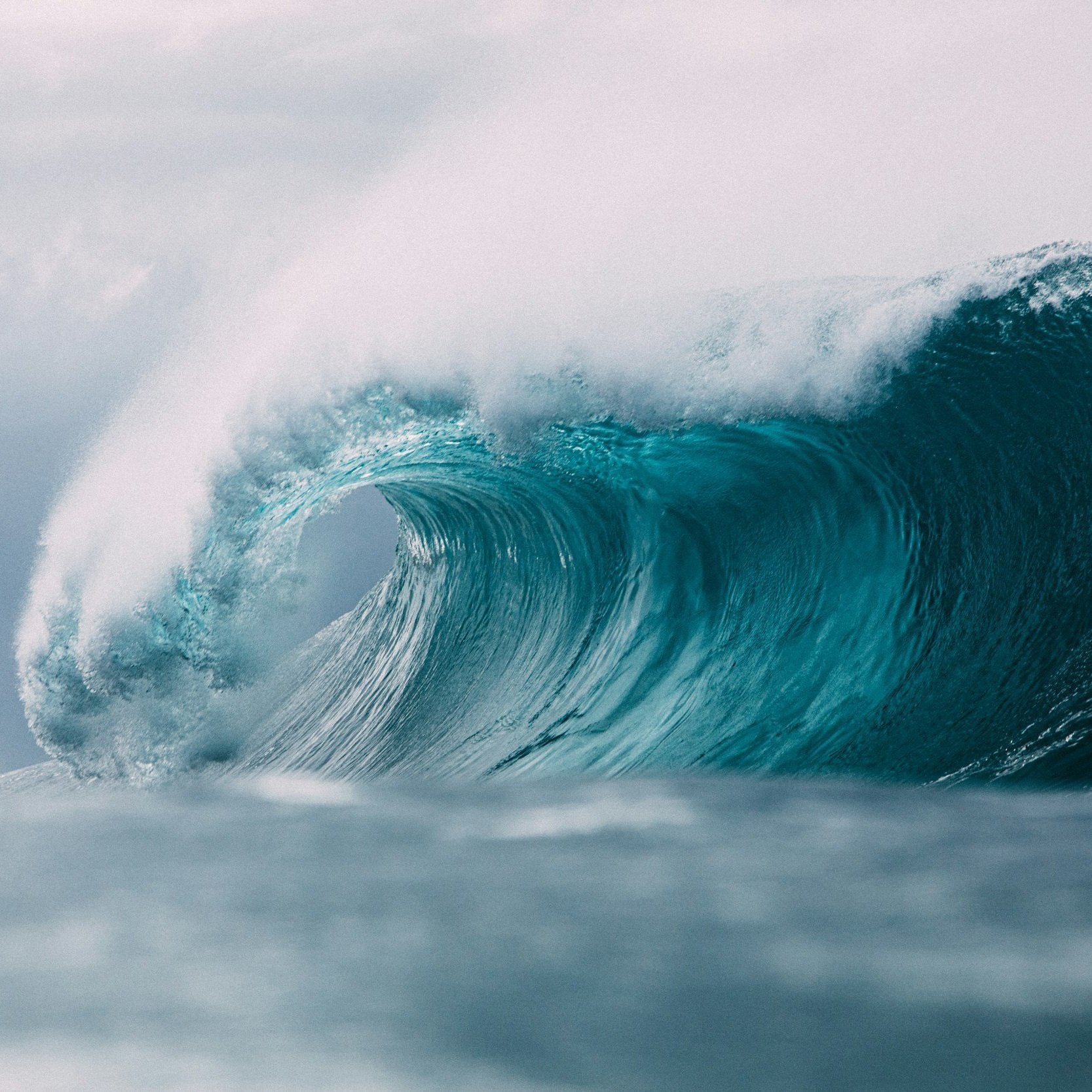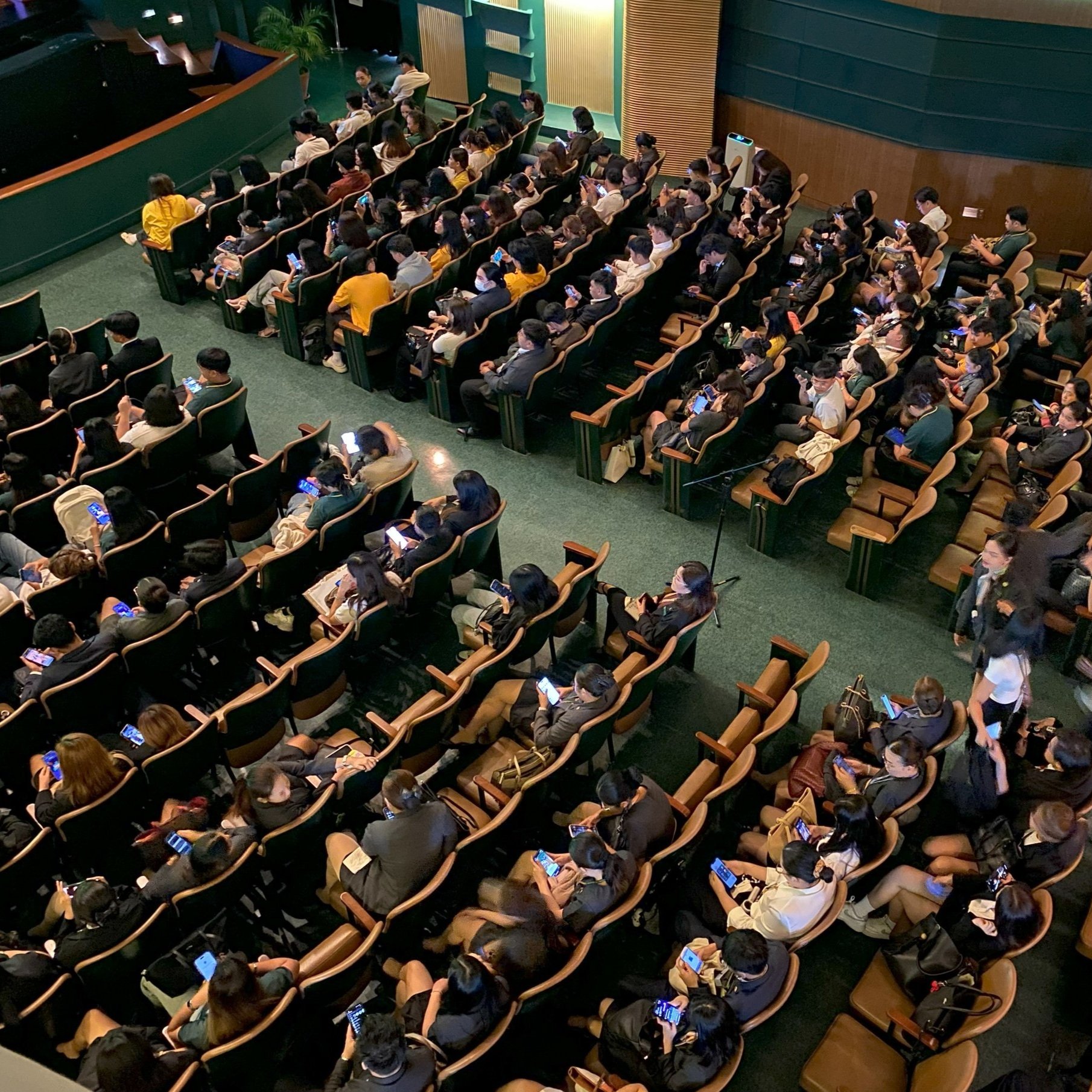Solutions to Plastic and Water Crises in Hospitality and Tourism
The recent Asia Sustainable Travel (AST) Forum Phuket at PHIST was a powerful showcase of passion and commitment, bringing together industry leaders eager to drive change.
The forum shed light on actions that hospitality and travel professionals can take in two key areas: plastic crisis and water shortage.
This wasn’t just a platform for talk. It was a launchpad for collective action, reminding us why we’re here: to make a difference, one sustainable step at a time.
Here are the key takeaways for travel and hospitality professionals to integrate sustainability into their businesses and daily lives.
Collective Action: Key to Combating the Plastic Crisis
In her introduction, Ernita Amalia, Sustainability Analyst of Seven Clean Seas, pointed out that '11 to 14 million of the 450 million tons of plastics produced annually wreck the environment.’
As a matter of fact, plastics and microplastics infiltrate every aspect of life on Earth. A recent study from Cornell University in the U.S. reveals that Southeast Asia now leads the world in microplastic consumption.
In Indonesia, people are ingesting 15 grams of microplastics a month. That is the equivalent of three credit cards, with most of these plastic particles originating from marine sources like fish and seafood.
Simply put, the plastic crisis isn’t just an environmental issue; it’s a polycrisis that deepens climate change, fuels socio-economic inequality, accelerates biodiversity loss, and directly threatens our health.
As leaders and professionals of an industry whose very existence is about nourishing people and showcasing the beauty of our planet, we have a profound responsibility and a tremendous opportunity to lead the charge in addressing this plastic emergency.
1. Plastic Crisis vs. Hospitality: Can Plastic Credits Save the Day?
The short answer is no. But Plastic Credits helps solve one part of the plastic crisis: the lack of funding waste management facilities.
Seven Clean Seas, an ocean impact organization headquartered in Indonesia, is spearheading the Plastic Credits scheme to address waste management funding gaps in many parts of Asia.
Partnering with Nikoi and Cempedak, it launched the first initiative to offset hotel plastic footprints — a breakthrough born from years of collaboration, as Amalia highlighted during the discussion.
The HIPPO is designed as a single boom that conveys the floating debris towards the vessel, collected automatically with the solar-powered conveyor on theChao Praya, Bangkok, Thailand. Source: Seven Clean Seas
2. First Priority: Tackle Plastic Waste Upstream
Jeffery Smith of Six Senses and Marina Tran-Vu of EQUO stress the need to tackle plastic waste upstream. But change takes time. Tran-Vu warns that doom-and-gloom messaging can backfire, demotivating action. The key is to offer compostable, convenient alternatives to plastics and make the switch appealing. EQUO’s creative designs aim to make plastic-free products irresistible for businesses and consumers alike.
Six Senses’ Plastic Freedom journey kicked off in 2016, with a launch to eliminate the “18 Most Unwanted” plastics in 2021. Smith revealed they’ve developed 82 innovative solutions to tackle plastic pollution across their properties, proving the brand’s commitment to setting new sustainability standards in hospitality.
Photos by: Six Senses.
3. Establish Impactful, Replicable Partnerships that Move the Needle
Smith emphasized the importance of working together with only the internal team and also suppliers and guests. The head office of Six Senses, a global brand with 26 properties, created a letter template for properties to urge suppliers to join their Plastic Freedom initiative. Each property has a sustainability director working with hotel managers to engage teams, while guests of all ages join in fun workshops at Earth Lab to make plastic-free items.
Tran-Vu shared a collaboration that EQUO formed with ECO Vietnam and JW Marriott. The project demonstrated how local expertise can be leveraged to simplify composting for consumers.
Photo by: EQUO
4. Reimagine Our Relationship with Plastic
Asia’s hospitality landscape is diverse, ranging from luxury resorts to budget-friendly accommodations, each with varying budgets and resources.
In tackling the plastic crisis, Amalia emphasized that while the 3Rs—Reduce, Reuse, Recycle—remain fundamental, the first “R” should be “Refuse.” She urged companies to eliminate plastic use wherever possible. Tran-Vu encouraged hospitality brands to repurpose existing items creatively and rethink product design, advocating for the use of compostable materials instead of plastics.
Smith, a long-time Phuket resident, called on local businesses to unite in reducing the influx of plastic water bottles on the island. While acknowledging that this wouldn’t solve Phuket’s entire plastic problem, Smith highlighted the significant market demand for water refill stations as a viable solution to keep millions of plastic bottles out of landfills and waterways.
How Circularity Strategies Can Help Hospitality Brands Save Water and Increase Bottom Line
The hospitality industry is a major global water consumer.
The World Sustainable Hospitality Alliance reports that a hotel room can use an average of 1,500 liters of water daily, often exceeding local usage in areas with limited supply. In some places, tourist water consumption is over eight times higher than that of local residents.
Maitri Fischer, Co-founder and Chief Technical Officer of Eco Mantra and one of the panelists, noted that in five-star resorts, water consumption can reach 2,500 liters per guest.
This staggering figure underscores the urgent need for effective water strategies.
The global demand for freshwater is projected to exceed supply by 40 percent by 2030, according to Csaba Kőrösi, president of the 77th UN General Assembly. In Thailand, issues like water shortages, droughts, and saltwater intrusion in its groundwater sources have persisted for decades.
Given all these challenges, the industry must not only rethink strategies but also seek innovative solutions to conserve water and enhance the hotels' operational efficiency and profitability.
Emerging Trends and Innovations in Water Technologies
O.B. Wetzell, Managing Director of DMG Thailand, started by sharing the water situation in Phuket and the emerging trends or innovations in water technologies for hospitality that he believes will improve the conservation and quality of water.
Despite an average annual rainfall of 2.4 meters, Phuket is grappling with a water crisis attributed primarily to inefficient water management practices.
The Phuket Water Association (PWA) has highlighted a deficit of at least 3 million cubic meters concerning the island's capacity to support its burgeoning tourism industry, which attracts around 12 million visitors annually.
Less than 3% of the island's considerable rainfall is effectively utilized, exacerbating the crisis and leading to the depletion of aquifers and increasing salinity and contamination of freshwater sources.
To address these pressing issues, Wetzell proposed several innovative water management strategies.
Implementing cisterns, tanks, and filters in new construction projects, akin to regulations in the Caribbean, was suggested to preserve Phuket's water assets.
Utilizing sunlit ponds with appropriate plantings can enhance water capture and natural purification processes.
Permeable pavings can help reduce surface runoff and allow groundwater recharge, while dedicated efforts to clean and maintain kelongs (traditional fish traps) can prevent further water pollution.
Emerging technologies also offer promising solutions for enhancing water conservation in hospitality settings.
These include the use of water-saving appliances like tapware and urinals, the recirculation of hot water systems, and advanced sub-metering and leak detection to minimize wastage.
Designing water features with considerations for minimizing evaporation, employing xeriscaping and drip irrigation with native flora, and avoiding water-intensive amenities such as water-cooled ice machines can further reduce water consumption.
Advanced water production methods are equally crucial in tackling Phuket's water challenges.
Greywater harvesting, reverse osmosis (RO), desalination, and atmospheric water generators can supplement traditional water sources.
Utilizing condensation from air conditioning systems and effectively capturing rainwater are additional strategies to boost water availability.
When integrated with solar power, these technologies can provide clean and sustainable water sources, minimizing reliance on overtaxed natural aquifers.
Balancing Luxury and Sustainability in Hospitality Design?
Wetzell emphasized that "there's a huge education that needs to be done to balance those two." He explained that the challenge lies in educating both guests and staff about the importance of sustainable practices.
For instance, microswitches on doors save energy by turning off air conditioning if doors are left open, but guests often misunderstand this feature. As Wetzell shared, the guest would say, "'I'm paying $1,000 a night, I want to sit on the deck in my towel, my six towels, I can afford it."' Well, you can, but the planet cannot."
Circular Water Strategies
At Rosewood Resort, Wetzell implemented circular water strategies. The resort uses natural processes like gravity for water collection, sunlight for sanitation, and bioswales for purification. This approach reduces energy use and conserves water. Rainwater is filtered through bioswales and treated with carbon sand filters and UV purifiers, ensuring high-quality water.
Greywater Recycling Benefits
Greywater recycling at the resort saves about 220 cubic meters of water daily, primarily for irrigation, using drip systems to reduce evaporation. This results in substantial savings, approximately 6 million baht annually.
Sustainable Return on investment (ROI)
Wetzell recounted a resort CEO seeking a measurable ROI in 3.5 years. By implementing water management and bio-sanitization, the resort achieved cost savings and minimized water shortage risks, proving sustainability is financially viable.
Tailoring Water Conservation Solutions in Hospitality Design
Eco Mantra, a Bali-based environmental consultancy, innovatively integrates water conservation into hospitality design. By analyzing water usage, Eco Mantra identifies major water consumers like garden irrigation, pools, and chillers. They then develop a comprehensive material and water management system that cycles water multiple times, significantly reducing overall consumption.
In one Bali resort case study, advanced water-saving technologies reduced water use by 58%.
Key strategies included rainwater harvesting from roofs and pools, efficient water fixtures, and regenerative media filters for pools, cutting pool water consumption by up to 95%.
Fischer emphasized using alternative water sources to reduce groundwater use. Prioritizing rainwater and municipal water helps lessen reliance on groundwater, which is crucial in water-scarce areas.
Eco Mantra also optimizes landscape design to lower water usage by 30-50% through resilient landscapes and efficient irrigation systems. On-site drinking water bottling further reduces plastic waste and carbon footprint.
Financially, these measures yield significant returns. For the Bali resort, saving 73,000 cubic meters of water annually led to an ROI under four years and financial savings of close to $100,000.
This approach shows sustainable water management benefits both the environment and hotel economics.
An Eco-Mantra project with an integrated water management system. Photos by: Eco-Mantra
Overcoming Challenges in Implementing Circularity in Hospitality Projects
A key challenge in adopting circularity in hospitality is clients' mindsets, often believing sustainability is too costly and not financially viable. To counter this, it's crucial to demonstrate the financial and long-term ROI of sustainable practices.
"So early on, we have to find ways to convince them and reassure them that investing a little bit more in sustainability makes a lot of sense down the line."
Fischer's team addresses cost concerns with lifecycle cost assessment for each sustainability solution. For example, implementing eight different water-saving solutions in a 55-key resort incurred an additional cost of up to $90,000. However, these interventions resulted in an ROI of 2.1 years, proving to be a fantastic investment. The various sustainability interventions also led to a significant reduction in energy and water consumption by almost 50%.
Fischer's team has implemented 13 sustainable solutions in this project, achieving an ROI of less than four years. "Being able to do this kind of stuff is really important to convince the client that it makes a lot of sense to go forward with these ideas," said Fischer. These results emphasize that sustainable investments are both environmentally and financially wise.
Clear communication and evidence-based demonstrations are essential to overcome clients' initial cost hesitations regarding sustainability initiatives.
Integrating Water Conservation Strategies in A Resort Setting
At Batu Batu Resort in Malaysia, effective water conservation is crucial due to its off-grid location and limited resources. Cher Chua-Lassalvy, Co-owner and Managing Director, stated, "We have to pull, create, and treat our own water. It's really important that we are as efficient as possible."
These strategies highlight Batu Batu's commitment to sustainable water management:
Capacity limitation. With only 22 villas accommodating around 150 people, including the staff, this limited capacity helps manage water demand more effectively.
Desalination for water production, powered partially by solar energy. The resort uses desalination for water production, but due to the high costs associated with diesel-powered pumps, it emphasizes limiting water use.
Water-conserving landscaping. "We don't plant anything that needs watering; otherwise, it just dies. We try to keep the resort as natural as possible," said Chua-Lassalvy. The resort uses native, saltwater-tolerant plants like Scaevola and avoids introducing invasive species.
Rainwater ponds. Ponds around the resort capture rainfall, and a thick growth of plants slows water flow to the sea, enhancing ground absorption.
Closed greywater and blackwater treatment system, transitioning to a constructed wetland to reduce energy consumption further. This biological system allows water to be treated and returned to the ground, aiding in aquifer replenishment. "Our current system allows us to put water back into the ground, which helps refill our aquifer," explained Chua-Lassalvy.
Guest engagement. Visitors are informed about the island's water scarcity and encouraged to conserve through reduced laundry services and water flow reducers in taps.
Photos by: Batu Batu Resort
How have collaborations with local communities and stakeholders enhanced water conservation and benefited the resort?
Chua-Lassalvy highlighted the resort's proactive stance on sustainable tourism, noting Malaysia's lower tourism numbers offer a chance for careful planning. "Tourism doesn't have to be destructive," she says, explaining that the resort's sustainability and conservation department, established early on, became an NGO in 2019 for funding access.
Between 2021 and 2023, the NGO undertook a Ministry of Finance and UNDP-supported project on a nearby island to improve waste management, including sewage and water treatment. "We don't want to destroy what we have," Chua-Lassalvy stressed, pointing to the project's collaboration with local and federal governments and various agencies. This initiative aims to protect the islands' unique environment while supporting tourism as a vital economic activity.
A key result was the creation of Sustainable Travel Mersing, a multi-stakeholder destination coordination group with representatives from local and state governments, NGOs, and private entities, all working together on sustainable tourism.
The collaborations extend beyond conservation. By engaging in projects like Sustainable Travel Mersing and aiming for the district to become Malaysia's first INSTO (UN Tourism's International Network for Sustainable Tourism Observatories), the resort aims to enhance conservation efforts and infrastructure.
"We are possibly in a position to prevent things from deteriorating beyond our ability to control it," said Chua-Lassalvy.
Enhancing Sustainability and Profitability in the Beverage Industry with Closed-Loop Systems
Alexander Radach, Founder of Radach & Family Organics Co., explained that closed-loop systems minimize environmental impact by reusing resources.
At Sai Yok Springs, reusable glass bottles are collected, washed, sterilized, and refilled, significantly reducing their carbon footprint.
"A bottle of imported water has a footprint of 800 grams of CO2, whereas ours is just 70 grams," explained Radach.
Challenges
Sourcing reusable glass bottles was difficult due to a lack of local manufacturers and retailer take-back systems. "We had to do everything ourselves," said Radach, highlighting their self-sufficient distribution and recycling process.
Although initially costly, reusing packaging up to 100 times decreases long-term expenses and boosts sustainability, allowing premium pricing.
Contribution to Conservation and Community Welfare
Sai Yok Springs draws water from a natural spring, using only 1% of the output to prevent resource depletion. They also reinvest a share of their revenue back into the village through various initiatives. These include educating farmers on sustainable practices and funding projects to reduce pollution and improve water quality.
"It's about giving back," emphasized Radach.
Photos by: Sai Yok Springs
Lessons for the Hospitality Sector
In the previous panel discussion, Jeffery Smith from Six Senses provided a fantastic suggestion that is highly relevant for the hospitality sector. Many hotels set up their in-house bottling plants for room water, but these often fail due to staff turnover, engineering issues, or inefficiencies related to high staffing and space requirements.
Radach proposed a collaborative approach via associations like the Phuket Hotels Association. A shared bottling plant could standardize operations, improve efficiency, and reduce waste in individual operations. The choice of location is crucial to ensure water purity. Using atmospheric water generators could further simplify processes and conserve resources.
The idea extends beyond just water bottling. It could include using the same bottle washing machines to further streamline processes and reduce resource consumption.
These collaborative and innovative strategies offer a sustainable path for the hospitality sector to reduce waste and enhance resource conservation by standardizing and pooling resources.


